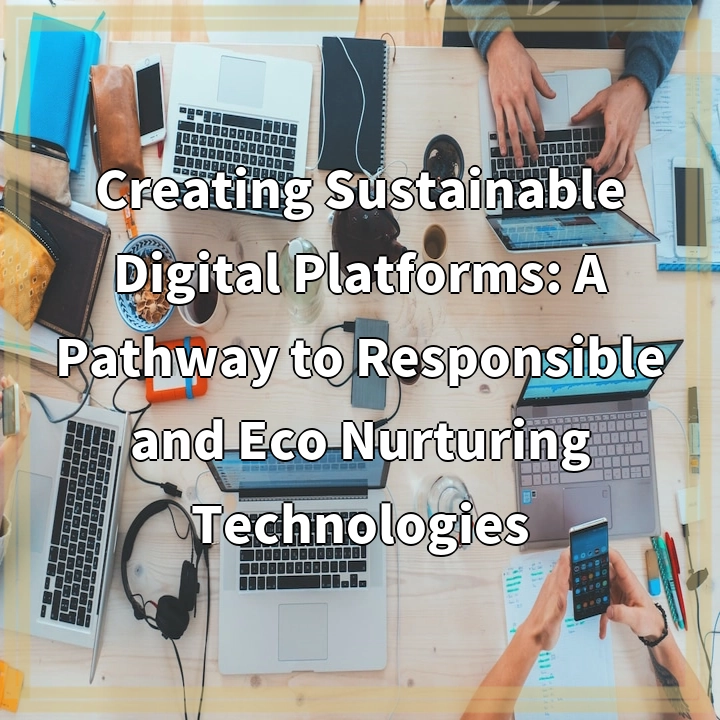
What it is:
Creating Sustainable Digital Platforms: A Pathway to Responsible and Eco Nurturing Technologies refers to the concept of developing and implementing technological solutions that promote sustainability and minimize environmental impacts. In the rapidly advancing field of digital technology, it is crucial to consider the ecological footprint of digital platforms and find ways to make them more eco-friendly and responsible.
Real-World Problems:
1. E-Waste:
E-waste, or electronic waste, is a major problem worldwide. As digital platforms continue to evolve and replace older devices, a significant amount of electronic waste is generated. This poses environmental risks due to the harmful chemicals and materials found in electronics, such as lead, mercury, and cadmium. Proper disposal and recycling of e-waste is essential to prevent these hazardous components from polluting the environment.
2. Energy Consumption:
Digital platforms require a substantial amount of energy to operate, from data centers to servers to individual devices. The increase in internet usage, data storage, and high-performance computing contributes to a significant energy demand that often relies on non-renewable sources. This leads to carbon emissions, contributing to climate change. Finding ways to reduce energy consumption and transition to renewable energy sources is crucial for sustainable digital platforms.
3. Resource Depletion:
The production of digital devices and the infrastructure required for digital platforms contribute to the depletion of finite resources. From the manufacturing process to the mining of rare earth minerals for components, digital technology relies on materials that are often extracted from environmentally sensitive areas. Responsible sourcing of materials and promoting recycling and circular economy practices are necessary to address this issue.
4. Digital Divide:
Access to digital platforms is not evenly distributed across the globe, creating a digital divide. Limited access to technology and reliable internet connectivity hampers individuals and communities from benefiting from digital platforms. Bridging this divide is crucial in ensuring that sustainable digital solutions do not exacerbate existing social and economic inequalities.

Solutions to Creating Sustainable Digital Platforms
1. E-Waste Management and Recycling:
Implementing effective e-waste management programs and promoting responsible recycling practices are crucial. This involves establishing collection points and ensuring proper disposal and recycling of electronic devices. Encouraging manufacturers to design products with recyclability in mind and educating consumers about the importance of recycling can help reduce the environmental impact of e-waste.
2. Energy Efficiency and Renewable Energy:
Improving the energy efficiency of digital platforms can significantly reduce their environmental footprint. This can be achieved through optimizing data center operations, using energy-efficient hardware and components, and adopting energy management techniques. Transitioning to renewable energy sources, such as solar or wind power, for powering data centers and devices can further reduce carbon emissions.
3. Sustainable Sourcing and Design:
Promoting sustainable sourcing practices for materials used in digital devices is crucial. This includes working with suppliers that adhere to responsible mining and manufacturing practices. Designing devices for longevity, repairability, and recyclability can also reduce resource consumption and waste. Encouraging a circular economy approach, where components are reused or recycled, can minimize the need for extracting new resources.
4. Bridging the Digital Divide:
Efforts should be made to ensure equitable access to digital platforms and technology. This involves investing in infrastructure development, particularly in underserved areas, and providing affordable access to internet services. Promoting digital literacy and skills training can empower individuals and communities to leverage digital platforms for social, economic, and environmental benefits.















